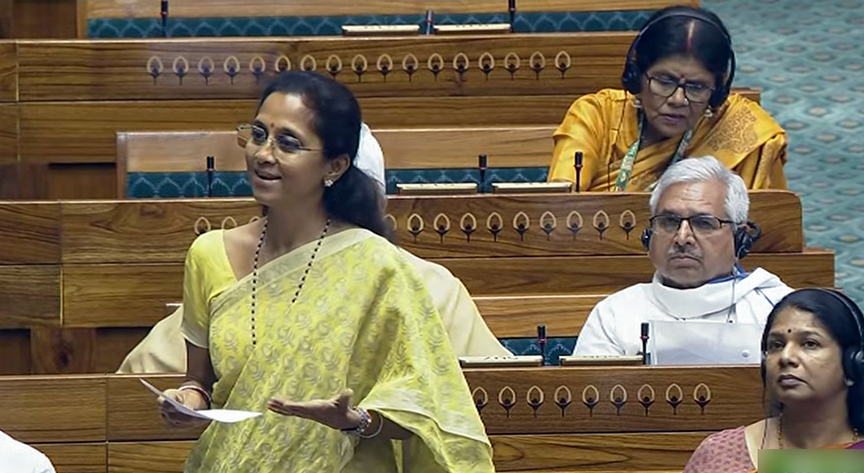NEW DELHI
The race to take credit for the parliamentary nod to the women’s reservation Bill and earlier draft legislations that paved the way for it has got intense in an election year, though Prime Minister Narendra Modi and his team have indicated that the implementation of the quota may not be possible before 2029. The Narishakti Vandan Adhiniyam-2023 passed by Parliament provides for introduction of 33% reservation for women in Lok Sabha and state assemblies. The reservation guaranteed in the Bill will be in force for 15 years after it becomes law.
Meanwhile, the fear of the BJP walking away with the credit for this Bill has started showing in assertions of Opposition leaders who are either deriding it as a half-hearted attempt that lacks quota for OBCs; calling it an election “jumla” or recalling their own parties’ past contributions.
BJP STRATEGY
BJP sources indicated that the party has chalked out a strategy to highlight during coming elections the passage of the Bill and other women-centric focus of the Modi government’s policy decisions, including free gas connections, tap water supply, proper toilets, permanent commission for women in armed forces and end of triple talaq, among others. The BJP is planning to use the punch line “Mahila Samman” to woo women voters.
Just before the Bill’s passage, BJP National President J.P. Nadda also made clear the party’s intention to highlight it as a major achievement of the Modi government when he said the “credit goes to the person who scores the goal”, a remark aimed at dismissing other parties’ claims on initiating steps for women’s quota in the past.
Two days after the passage of the Bill, the BJP also scheduled Prime Minister Modi’s public meeting exclusively for women at Sampurnanand Sanskrit University in his Varanasi constituency as part of the plan to educate voters about the efforts put in by it to push the Bill.
In 2019 Lok Sabha polls, BJP secured 36% of women votes (29 crore) while the Congress got 20% of women votes. Also, in these parliamentary elections more women, than men, exercised their right to vote. A BJP’s internal study after the 2019 Lok Sabha polls had indicated that women voters backed the party, regardless of caste and religion lines. In 2019, the percentage of women voters rose to 66.9% from 65.5% in 2014. In 2009, the figure was 55.8% and in 2004 it was 53.3%. Even the strength of women MPs has been rising steadily. In 2019, the number of women MPs stood at 78, in 2014 it was 61, in 2009 it was 59 and in 2004 it was 45.
RACE TO TAKE CREDIT
While Congress leader Sonia Gandhi highlighted in Lok Sabha that the bill was a step towards fulfilling the dream of her husband and former Prime Minister Rajiv Gandhi, the Trinamool Congress called its leader Mamata Banerjee as the mother of the Bill while Rahul Gandhi described it a setback for the OBCs as it did not have a separate reservation for them and demanded the immediate implementation of the women’s reservation.
Independent Rajya Sabha MP Kapil Sibal claimed the BJP’s timing of introducing the Bill showed that it was trying to seek a political advantage before Assembly and Lok Sabha elections. “What was stopping the Modi government from bringing in the women’s empowerment Bill in 2014 when it had a clear majority? Now with eyes on 2024 polls, they have brought the Bill to walk away with the credit,” he said.
NO ACRIMONY
The passage of the women’s reservation Bill introduced by the Modi government was in contrast to the acrimony that such a move witnessed the last time it was tabled in Rajya Sabha in 2008. The then law minister H.R. Bharadwaj sat in the middle of a human ring formed by women MPs from his party in the Rajya Sabha to avoid being physically assaulted by MPs from the Mandal brigade.
In 2010, the BSP, JD(U), RJD and SP had opposed the Bill claiming that it would not provide representation to women from deprived communities. This time, however, these parties have decided to support the Bill. Many MPs of these parties were marshalled out of the upper House when the Bill was passed in Rajya Sabha in 2008.

